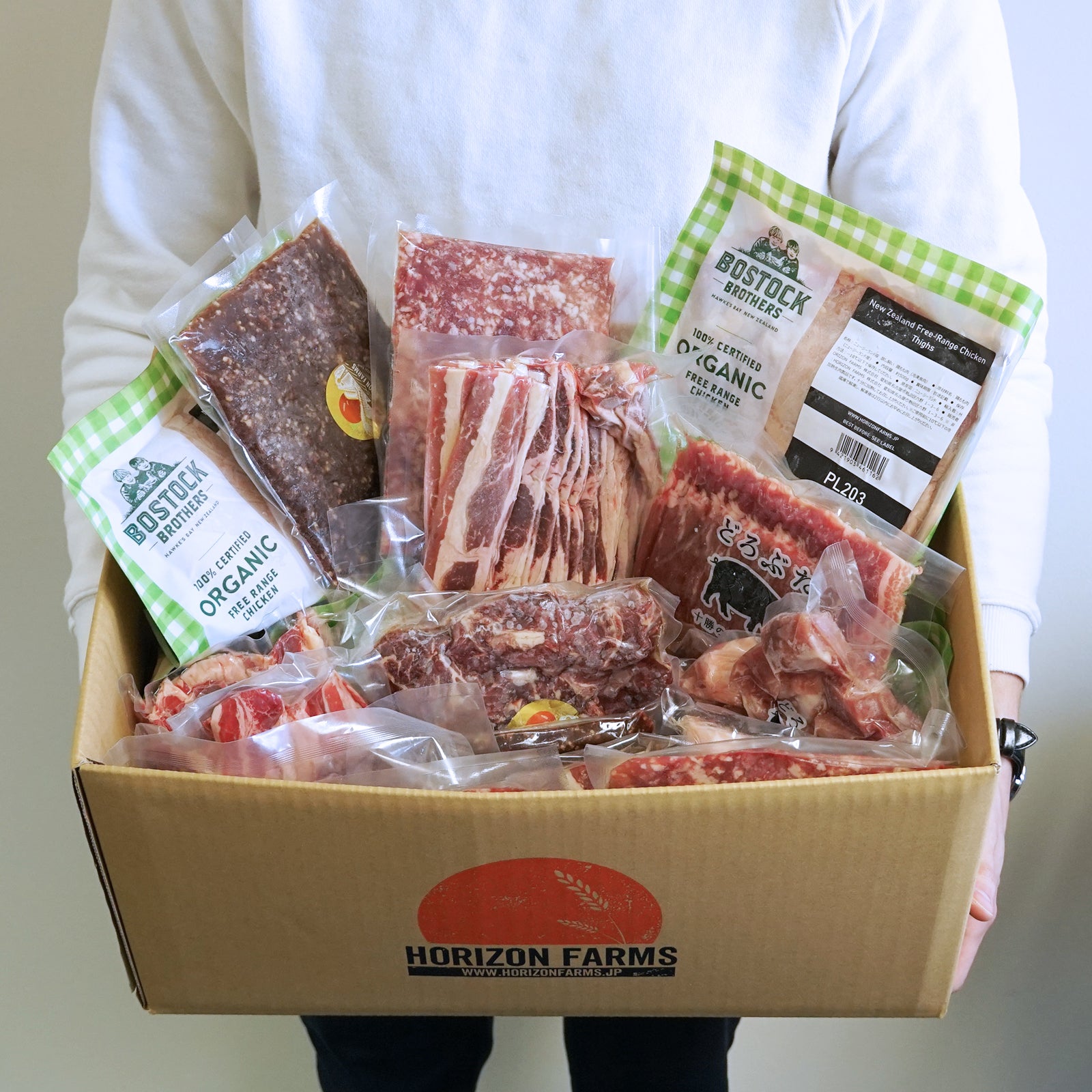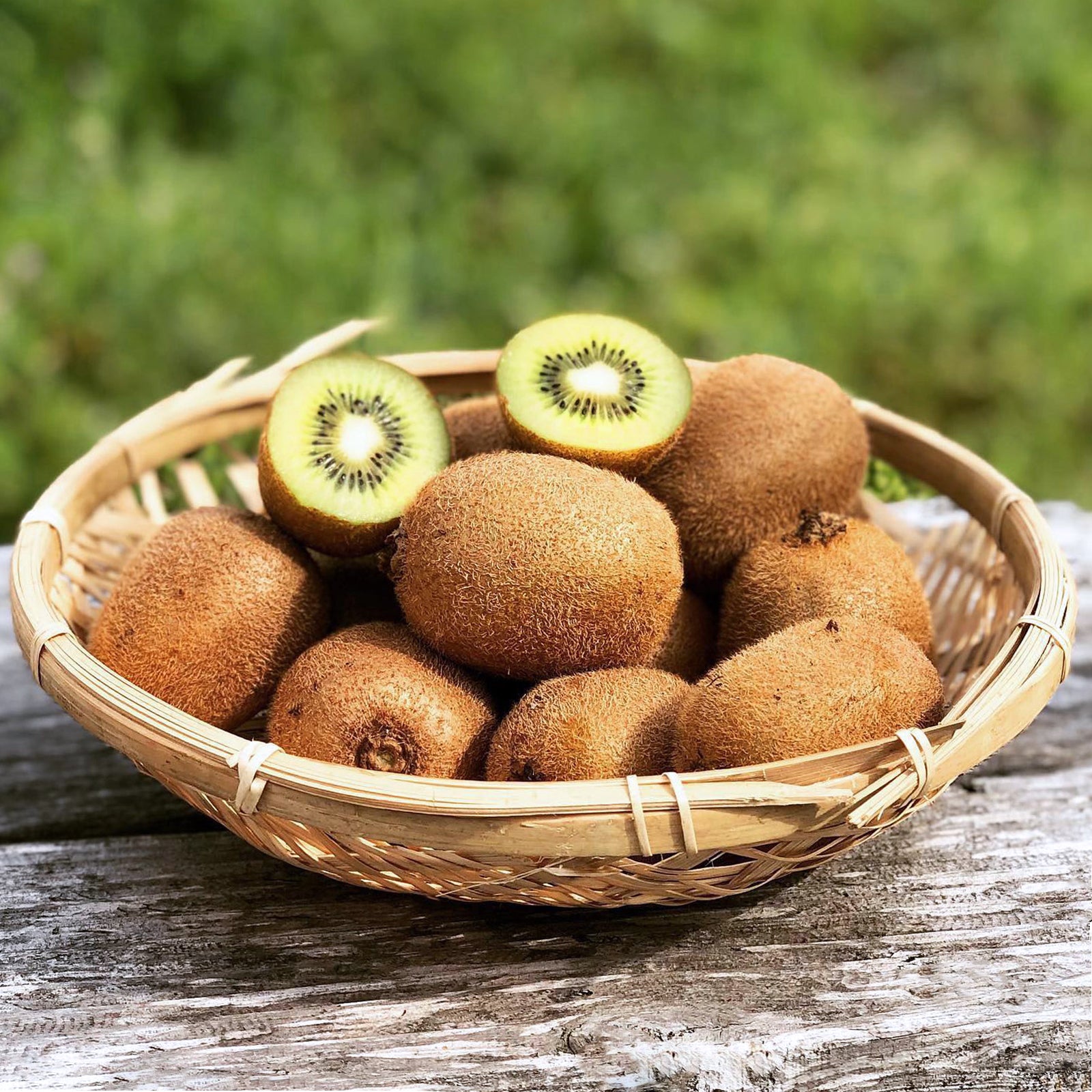
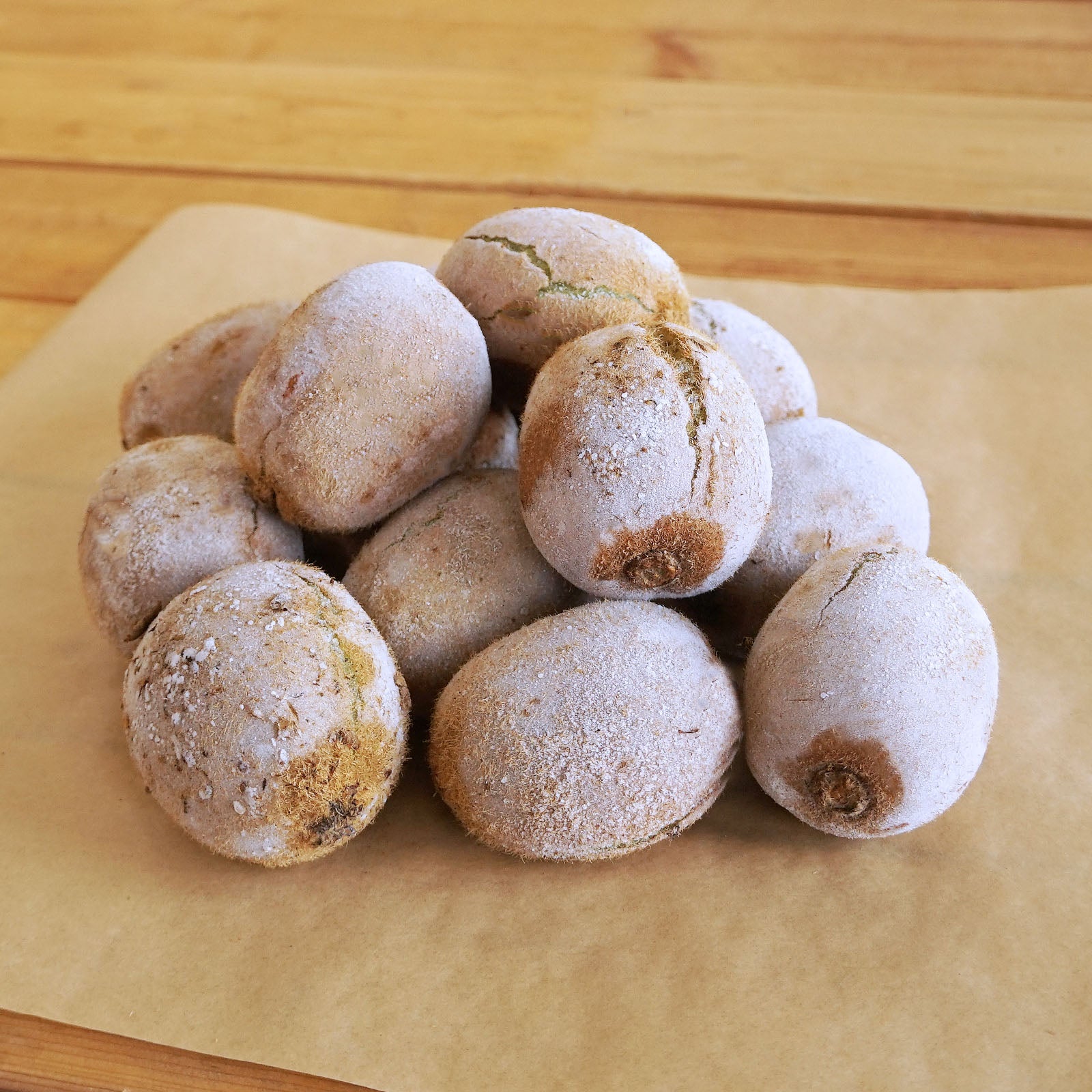
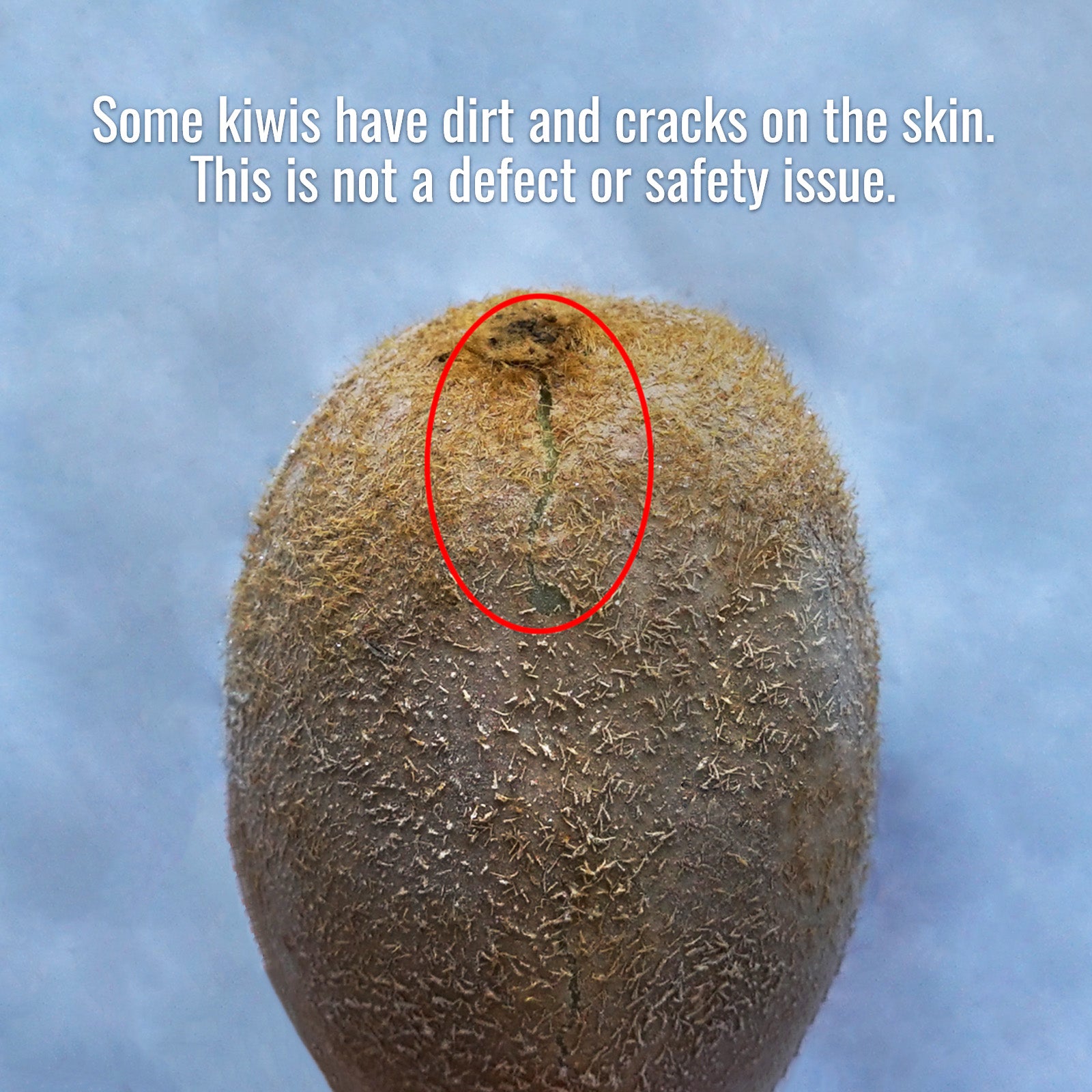
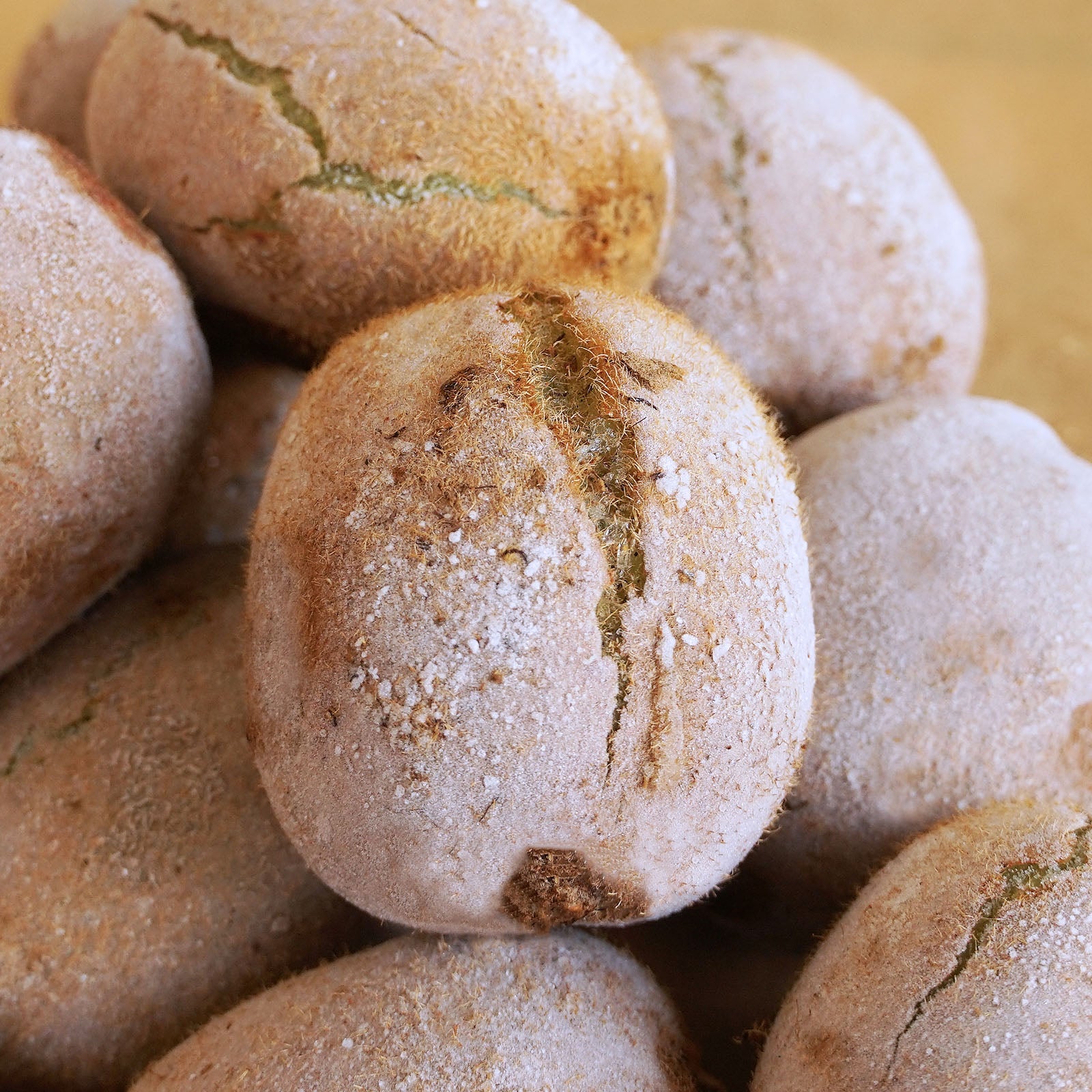
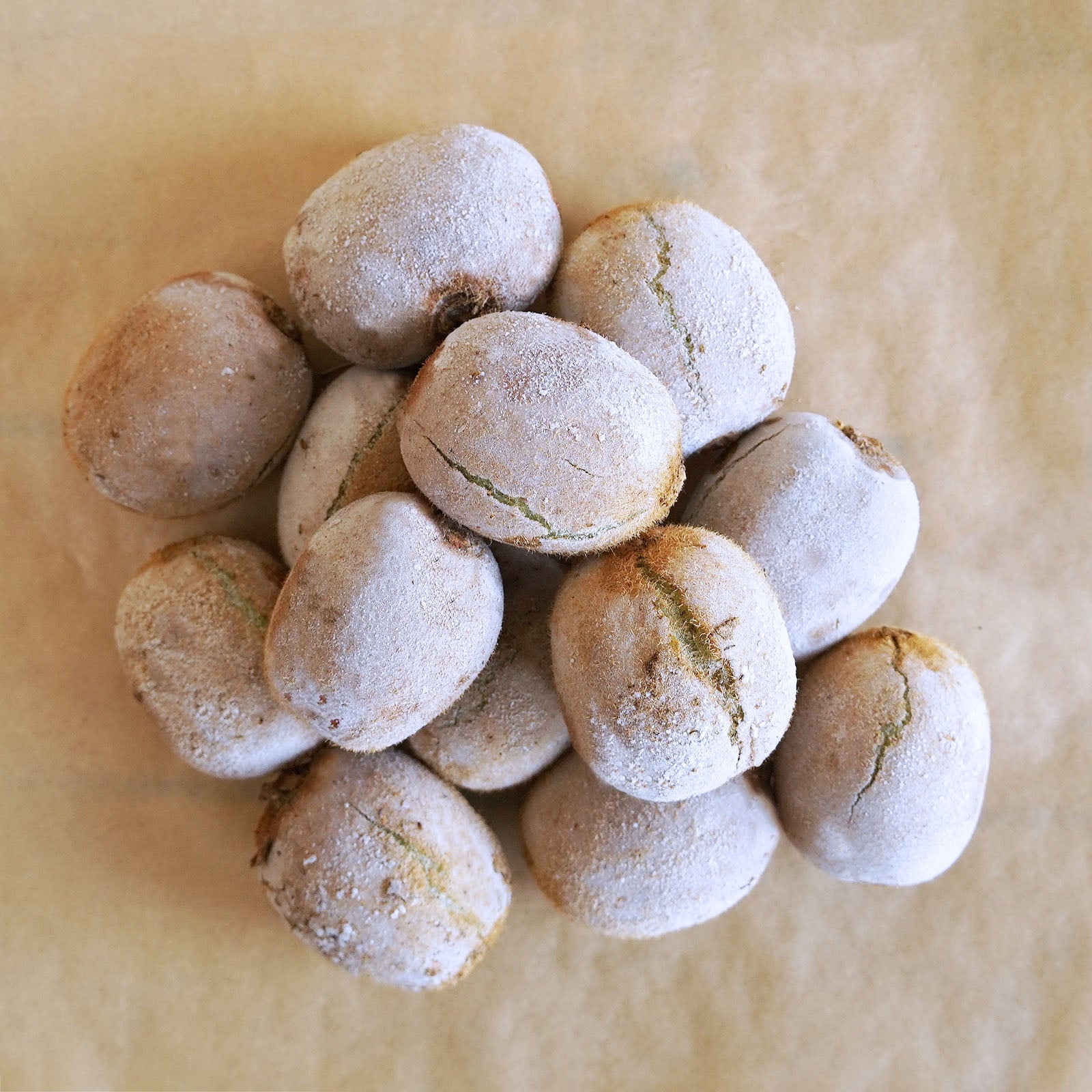
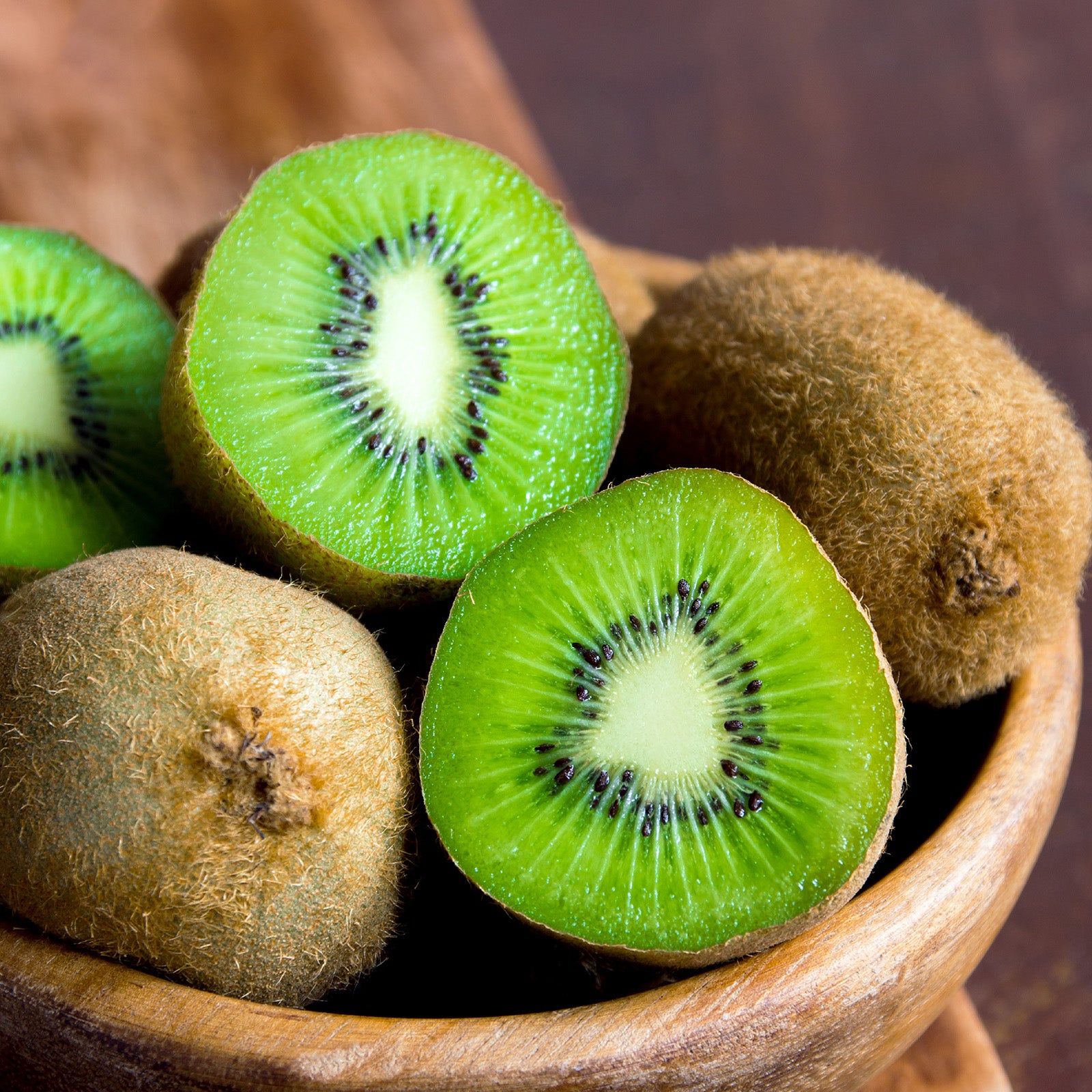

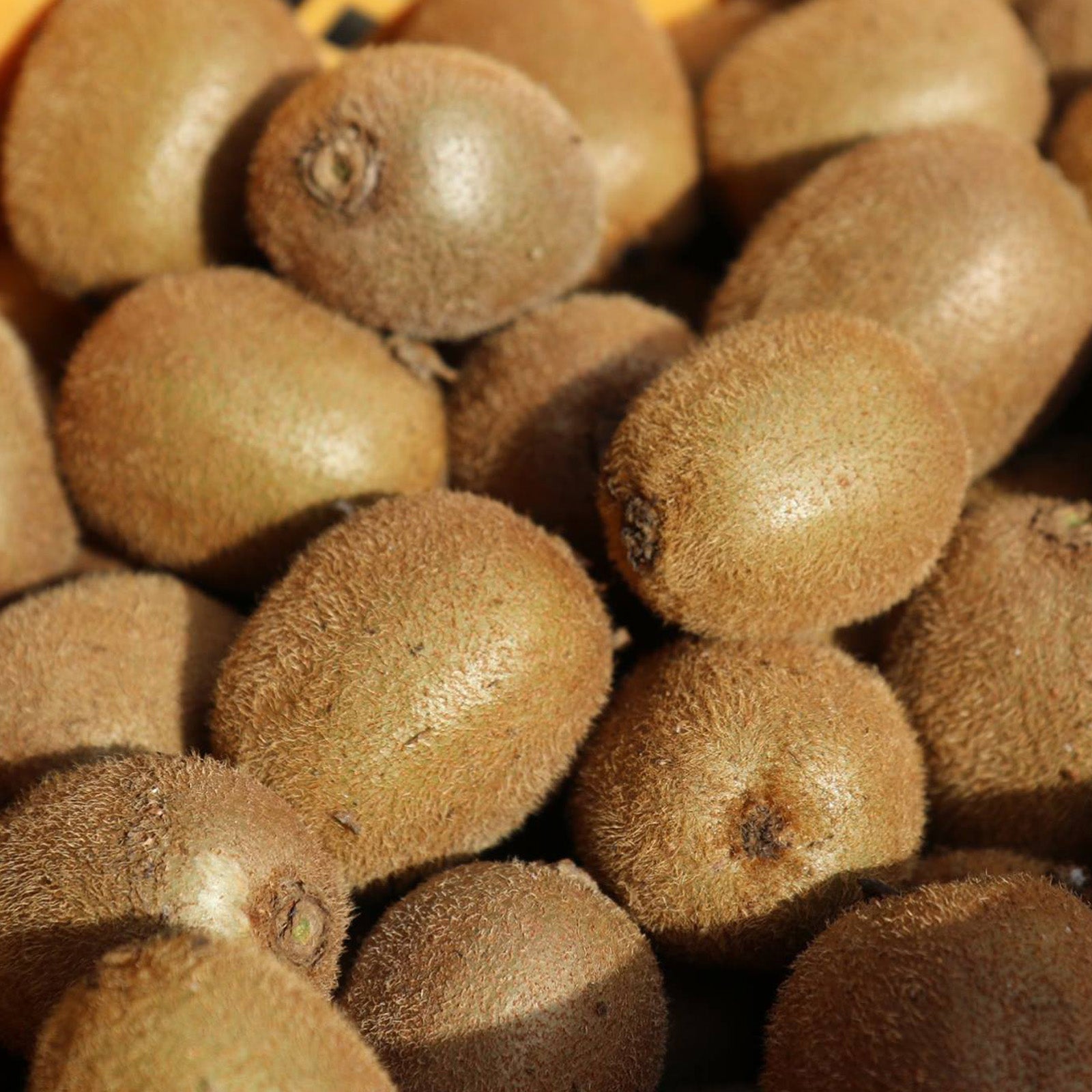
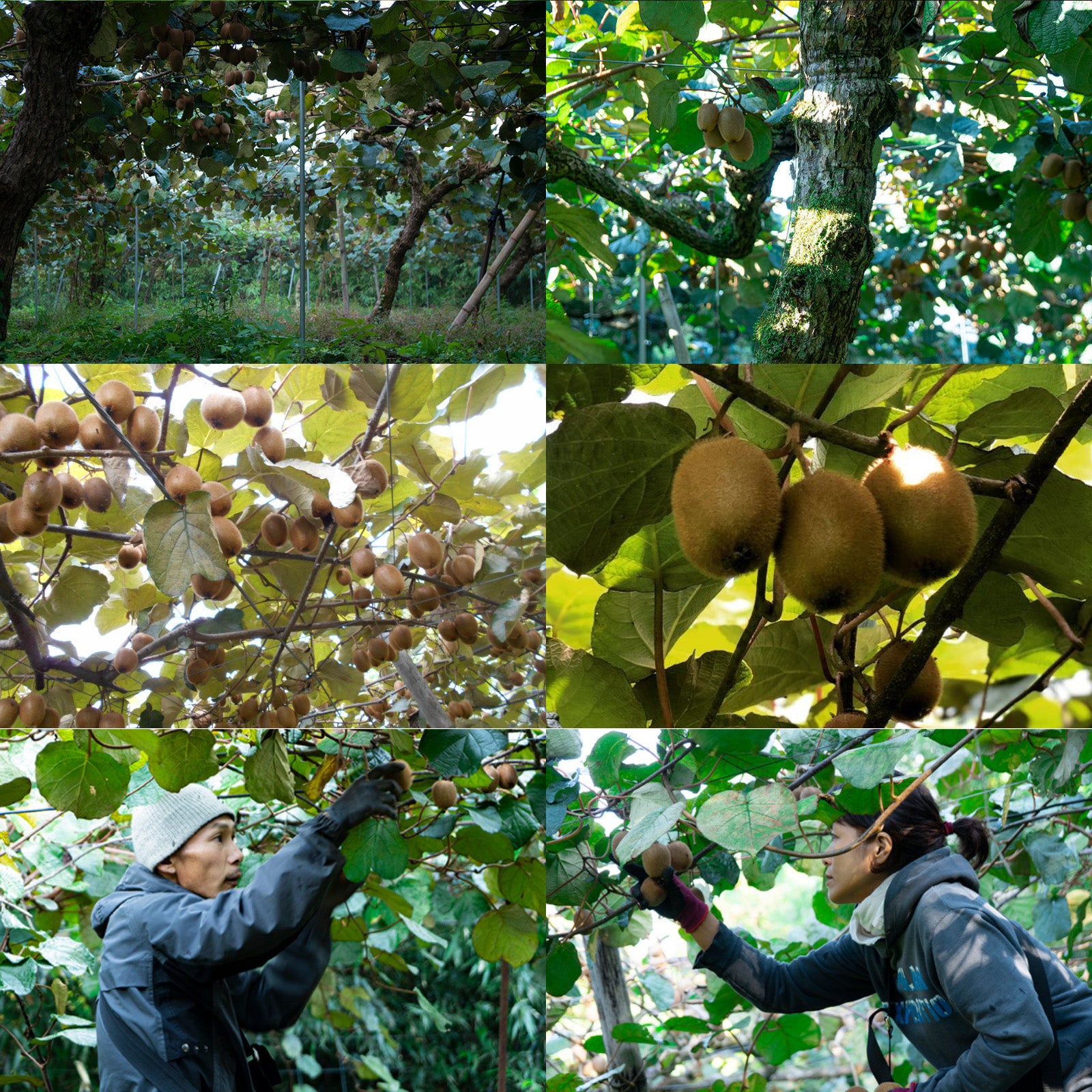
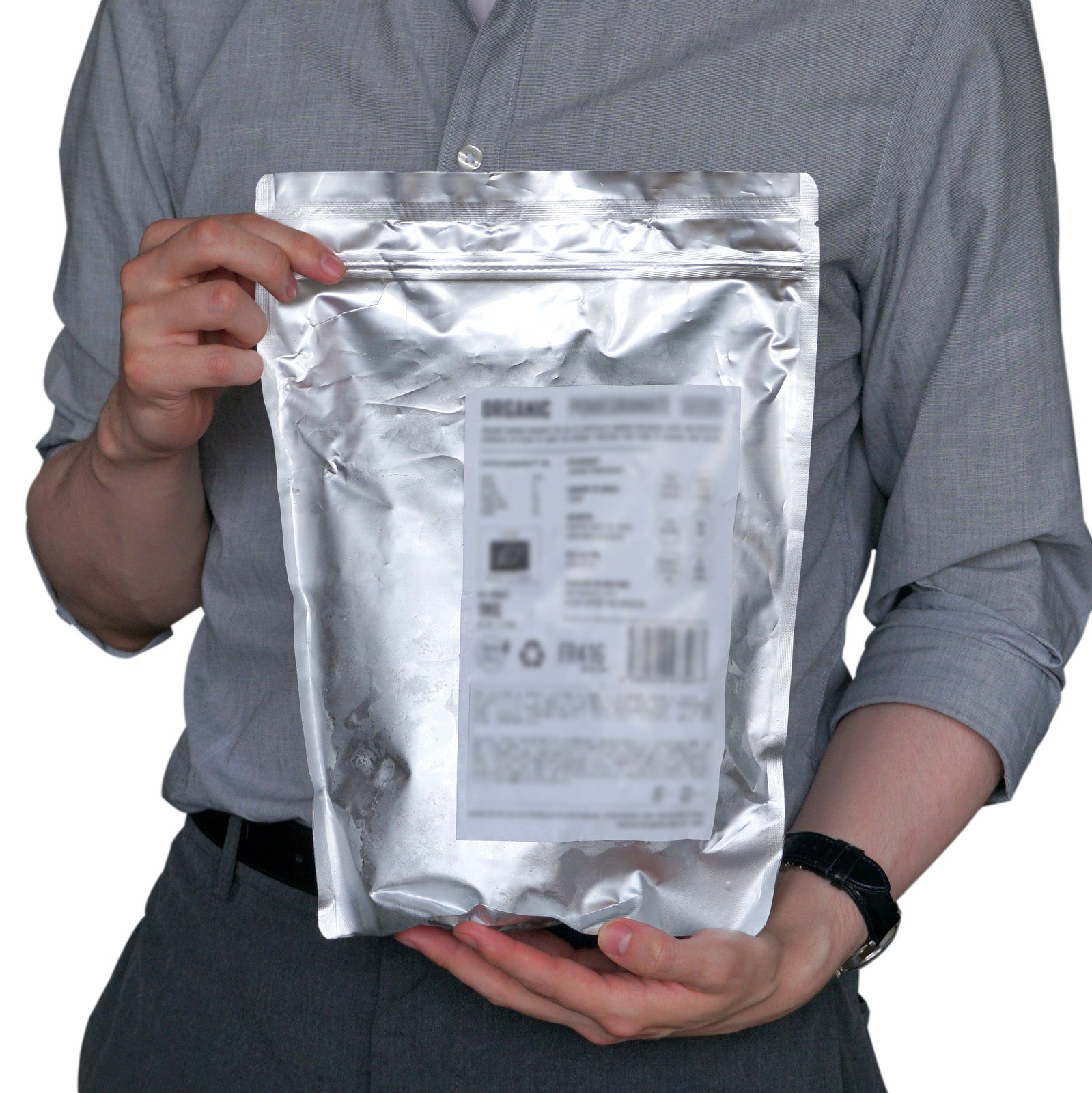
Horizon Farms
Certified Organic Frozen Kiwis from Japan (Cracked Skin) (1kg)
Choose options
When frozen, organic whole kiwis expand and which causes the outer skin to wrinkle or crack. Note there may also be some soil on the skin, but rest assured there are no quality or safety issues.
One full 1kg (2.2lbs) bag of fresh frozen certified organic kiwis from Japan. Naturally grown in Usuki, located in the southern part of Oita Prefecture. Freshly picked kiwis are typically hard and tart, so these are frozen after about 2-3 weeks of ripening for maximum sweetness. Absolutely no use of chemical fertilizers or pesticides. When grown in such a natural environment, the kiwis are nourished by a wide variety of natural plants and other microorganisms, resulting in kiwis that are full of minerals.
We highly recommend defrosting the kiwis under running water for about 30 seconds to get the desired degree of softness, as they are fairly hard right out of the freezer. After rinsing to defrost, the skin is easier to peel off and a knife slides through it with ease. Defrosted kiwi has a sweeter taste to it and half-defrosted is the best state for a delicious mixture of sweet and sour. We recommend half-defrosting if you want to eat the kiwi as it is, as the texture changes by letting it defrost completely. Eat as is or add to your smoothie or yogurt. Rest assured the kiwi skin is safe to eat as well, but please rinse thoroughly before consumption.
✔ Grown naturally without the use of pesticides, chemical fertilizers and other nasties in Usuki, located in the southern part of Oita Prefecture.
✔ Nourished by a wide variety of plants and other microorganisms, the kiwis become more packed with minerals.
✔ Organic matter is used as compost, which is naturally reintegrated back into the soil.
✔ Sustainable organic farming that includes the cultivation of plots and fields that have not been used for other purposes for many years.
Contents
| Contents | 1 pack |
| Weight | 1kg (2.2lbs) |
Shipping & Handling
| Shipping | Shipping and delivery is frozen |
| Handling | Keep frozen below -18°C (0°F) |
| Expiration | Check product label, usually more than 1 month. |
Details
| Ingredients | Organic Kiwi (Oita Prefecture) |
| Packaging | Resealable food-grade aluminum pouch |
| Country of Origin | Japan |
| Organic Certificates | Organic Japan Agricultural Standard (JAS) - Certificate Number: Oita Organic Research Institute 0149 |
| Other | Please note that the kiwis vary in size because they are grown naturally. Rest assured there are no safety or quality issues. |
| Nutritional Facts | 100g serving size Energy: 51kcal Protein: 1.0g Total Fat: 0.2g Total Carbohydrate: 13.4g Total Sugar: 9.6g Sodium: 0mg |
ABOUT CERTIFIED ORGANIC
This product is certified Japan Agricultural Standard Organic (JAS) - both in the country of origin and Japan. Japan has one of the world's strictest organic certification standards. But what does certified organic mean when it comes to fruits and vegetables?
✔ Strictly tested for E Coli, coliforms, molds, yeasts as well as listeria and salmonella and therefore meets very high microbiological safety standards.
✔ Free of harmful synthetic chemical inputs such as fertilizer, pesticides or any food additives.
✔ Free of genetically modified seeds (non-GMO)
✔ The farmland and soil in use are free of any chemical treatments.
✔ Organic produce is heavily regulated. Producers and importers are checked and inspected by governmental bodies or certified third parties. Organic certification requires detailed bookkeeping and documentation for 100% tracability. "Certified organic" is a protected word and the use is legally restricted.
✔ Organic farming is a more sustainable when it comes to holistic food production. The lack of harmful pesticides is better for the environment.
✔ Organic produce comes mostly from family-owned farms that own smaller acres of organic land.
It is also important to mention that organic produce is more cost-intensive. Organic farming has lower yields compared to conventional farming and is oftentimes more labor-intensive as well. Additionally, organic certification and auditions require annual fees for producers, exporters, and importers resulting in higher prices for the end consumers.
Please note that non-processed, non-GMO, and chemical-free produce will always have a minor degree of defects; these may include, decolorations, insect damage, broken damage, crumble damage, squashed damage, over or under maturity, and minor natural non-harmful mold. Although rare, there may worms, scratches or mold on the product that cannot be seen during inspections. None of these are harmful or a safety issue and can be removed without worries.
To ensure that the trees do not exceed their natural capacity for sustainable production, organic matter is used as compost, which is naturally converted into soil. The pollen needed to grow the kiwis is harvested directly from the surrounding flowers (not store-bought pollen!) to keep the production as environmental-friendly as possible. The farm is in a beautiful and natural location surrounded by mountains and the sea. See images of the actual farm and farmers below.



